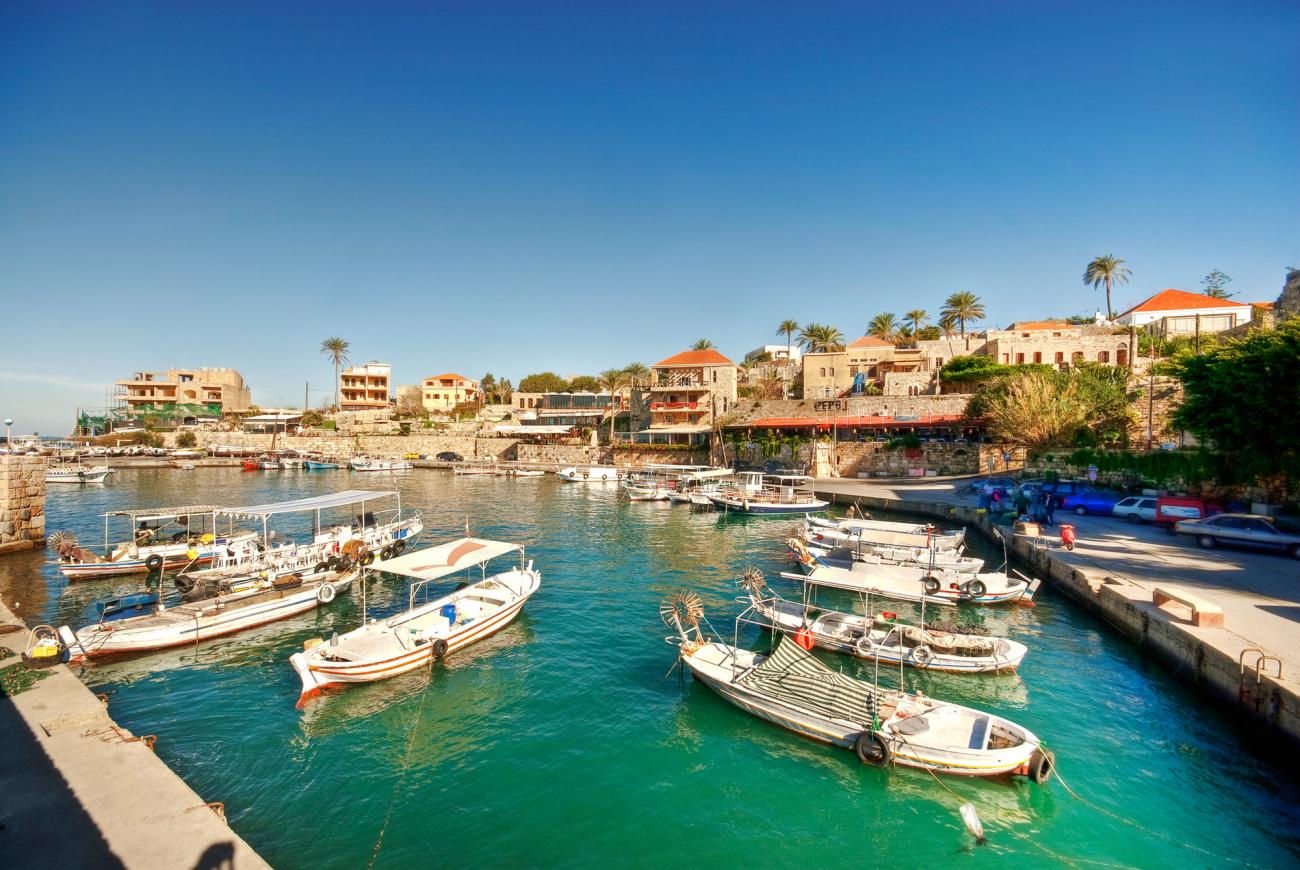Top Ten Highlights of Lebanon – Things to Do or Try
Explore the epic ruins
 - Copy.jpeg)
Two of the Roman Temples of Baalbek were two of the largest in the Roman Empire and the remaining six columns of the Temple of Jupiter are the tallest Roman columns in the world. Add to that the remains of the Great Court and the great stepped entrance and Baalbek really is a site you won’t forget in a hurry. If Baalbek doesn’t quench your thirst for ancient ruins, don’t forget the Phoenician and Roman ruins in Byblos, the two Roman sites in Tyre and the Umayyad city of Aanjar (and the dozens of other smaller sites you can stumble upon across the country!)
Enjoy the Mediterranean harbours

The first settlements in Lebanon were established by the Phoenicians, a sea-faring people who built at least two harbours in each of their cities, many of which remain. Today they tend to feature wooden fishing boats bobbing up and down and are lined by restaurants and cafés, possibly overlooked by a Crusader castle. After a morning sightseeing in these historic towns, what could be better than sitting down to a long Lebanese lunch or an Arabic coffee looking out over the Mediterranean?
Try some local wine
 - Copy.jpeg)
The number of wineries in Lebanon means that you are never far from having a glass of wine in your hand, Lebanon is one of the oldest wine-making countries in the world and the quality of the wine is excellent. Visiting a winery will involve a tour of the cellars as well as a tasting, some will serve you a meal as well. They vary from tiny family-run institutions to large, historic estates; all their offerings can be found in bars and restaurants nationwide.
Hike some trails
 - Copy.jpeg)
There are hundreds of kilometres of hiking trails in Lebanon, including the Lebanon Mountain Trail, a 470km route running almost the length of the country. The trail passes through the various nature reserves, each home to its own network of trails, and it is possible to hike over mountains, through cedar reserves, past lakes, along rivers and from village to village enjoying the beautiful Lebanese landscapes.
Explore the castles
 - Copy.jpeg)
The majority of the castles in Lebanon date from Crusader times when some truly fine castles were built. They can still be found in coastal towns or on the tops of hills in varying states of repair. The citadel in Tripoli looks out over the city, the sea castle in Sidon is reached by a stone path over the waves and Beaufort castle in the south is in such a strategic position it was even used by the PLO and then the Israelis during the civil war.
Stay in a traditional house
 - Copy.jpeg)
Over the last few years, more and more traditional Lebanese houses - often family homes filled with antiques and a homely atmosphere - are being renovated into guesthouses. Travellers can stay in boutique houses, some with interior décor by local artists such as Beit Tammana, which is run by a charity for terminally ill children. Others, such as Maison Reiss, have had to renovate a second time following the devastating explosion in Beirut.
Meet Lebanese people
 - Copy.jpeg)
Each time that I have visited Lebanon I have met a varied and interesting array of people, many in unexpected circumstances, but all have been friendly and welcoming. The Lebanese are a nation who are keen to show you their country, the good parts and the bad, and to help you understand how their history has shaped their lives.
Eat traditional food
 - Copy.jpeg)
Lebanese cuisine needs no introduction, but even after several visits, there are still local surprises to be found. I discovered akoub in the Shouf in May. This wild plant grows across the region in the springtime and people from Turkey down to Jordan go out and forage it. It is a thistle-like plant but the heart, once fried up in olive oil with some garlic, is delicious.
Buy a hand blown glass (for your Lebanese wine!)
In the southern village of Sarafanda, you'll find the last of the traditional glass blowers left in Lebanon. Stop by the workshop and watch the blowers in action. The shop has been run by one family for generations and they keep the 2000-year-old Phoenecian furnace running around the clock. The small shop has a great variety of pieces for you to take home and best of all, it's all made from recycled glass!
Support local, sustainable farmers
 - Copy.jpeg)
Beirut hosts a weekly farmers’ market at Souk Al Tayeb and it is also possible to eat and stay at Tawlet Ammiq in the Bekaa Valley, which is part of the same NGO, where the restaurant is run on sustainable principles and all the produce is locally grown. Their sister hotel in Douma is a beautifully renovated house which runs cookery classes every Saturday, bringing in ladies from around Lebanon to run the classes. In the Shouf, you can take lunch at the Sustainable Agricultural Hub where local farmers can attend sustainability workshops and the Abu Saab Brothers who run it also put on a delicious spread for hungry tourists.